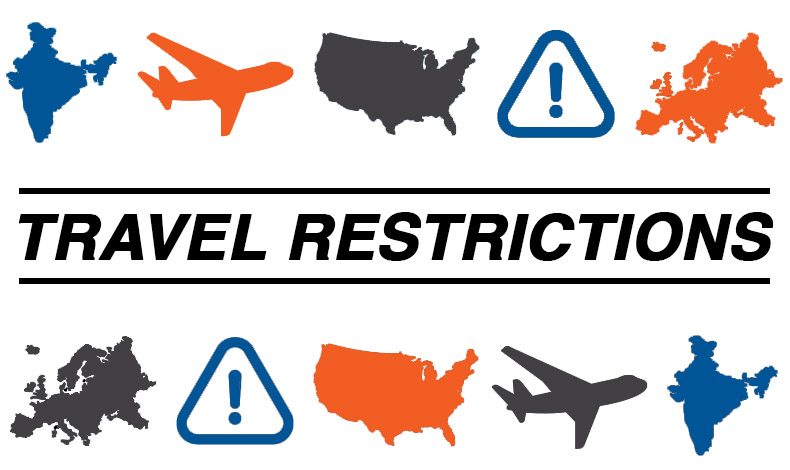Facing a DWI charge can be a confusing and stressful experience, especially if you’re unsure how it differs from other impaired driving offenses. Many people use terms like DUI and OVI interchangeably, but they actually refer to different legal definitions based on the state and the severity of the offense.
In this guide, we’ll break down the key differences between a DWI charge and similar offenses, the legal consequences, and what you should do if you’re charged with driving while intoxicated.

What Is a DWI Charge?
A DWI charge (Driving While Intoxicated) is a serious offense that occurs when a driver operates a motor vehicle while impaired by alcohol or drugs. The definition varies by state, but a DWI charge is generally applied when a driver has a Blood Alcohol Concentration (BAC) of 0.08% or higher. Some states also use DWI as a broader term to include drug-related impairment.
Penalties for a DWI charge can range from fines and license suspension to jail time and mandatory alcohol education programs. The severity of the punishment depends on the driver’s BAC level, prior offenses, and whether any accidents or injuries occurred as a result of the impairment.
DWI vs. DUI: What’s the Difference?
Many states differentiate between DWI (Driving While Intoxicated) and DUI (Driving Under the Influence). While the terms seem similar, they can have distinct legal meanings depending on the state where the charge occurs. Understanding the difference between the two is essential, as penalties and legal defenses may vary.
DWI typically refers to a driver being intoxicated by alcohol, meaning their BAC is over the legal limit. In some states, a DWI charge carries harsher penalties than a DUI, particularly when a driver’s BAC is significantly above the legal threshold.
DUI can refer to impairment by either alcohol or drugs (including prescription medications). Some states treat DUI charges with the same severity as DWI, while others classify them separately based on the substance involved.
Some states use DWI and DUI interchangeably, while others reserve DWI for more serious offenses (higher BAC levels or repeat offenses). If you’re facing a DWI charge, it’s important to understand how your state defines the offense. Consulting a legal expert can help you determine the best defense strategy.
Other Similar Offenses: OWI and OVI
Besides DWI and DUI, other terms are used for impaired driving offenses, depending on the state. Knowing these terms can help you understand how your specific charges are classified.
- OWI (Operating While Intoxicated) – Used in states like Michigan and Wisconsin, this term includes driving or being in control of a vehicle while impaired. It does not require that the vehicle be in motion, meaning someone sitting in a parked car while intoxicated could face charges.
- OVI (Operating a Vehicle Impaired) – Used primarily in Ohio, this charge applies to both alcohol and drug-related impairment. Even prescription drugs that affect a driver’s ability to operate a vehicle safely can result in an OVI charge.
Although these terms differ, they all carry similar legal consequences, including fines, license suspension, and potential jail time. The severity of penalties depends on the circumstances of the arrest, such as BAC level and prior convictions.
Legal Consequences of a DWI Charge
A DWI charge can lead to severe penalties, even for first-time offenders. The punishment varies depending on state laws, BAC level, and prior convictions. In some cases, drivers may also face additional penalties such as mandatory treatment programs or community service.
First-Time DWI Offense
- Fines – Can range from $500 to $2,000, depending on the severity of the offense. Additional court fees and legal costs can add to the financial burden.
- License Suspension – First-time offenders may lose their license for six months to a year. Some states offer restricted licenses, allowing drivers to travel to work or school under strict conditions.
- Jail Time – Some states impose mandatory minimum sentences, even for first offenses. Judges may have discretion in sentencing, depending on aggravating or mitigating factors.
- DWI Education Programs – Courts may require offenders to attend alcohol awareness or DWI intervention programs. Completion of these programs may be necessary to reinstate a driver’s license.

Multiple DWI Offenses
If a driver has previous DWI convictions, penalties become significantly harsher. Repeat offenders face escalating consequences designed to deter future violations.
- Higher Fines – Repeat offenders can face fines exceeding $10,000. Courts may impose additional financial penalties for damages caused by impaired driving.
- Longer License Suspension – License revocation for several years is common. Some states enforce a lifetime suspension after multiple convictions.
- Felony Charges – A third or fourth DWI may result in a felony conviction, carrying prison time and a permanent criminal record. Felony convictions can impact employment opportunities and civil rights.
- Ignition Interlock Device (IID) – Many states require repeat offenders to install an IID in their vehicle, preventing them from driving if they have alcohol in their system. Failure to comply with IID requirements can lead to further penalties.

Aggravated DWI: When a DWI Charge Becomes More Severe
In some cases, a DWI charge can be upgraded to an aggravated offense, meaning the penalties become even more severe. Courts consider various aggravating factors that elevate a standard DWI to a more serious charge.
- High BAC Levels – A BAC of 0.15% or higher often results in increased fines and jail time. Some states have enhanced penalties for extremely high BAC levels, even for first-time offenders.
- Accidents or Injuries – If a DWI leads to a crash, especially with injuries or fatalities, the driver may face vehicular manslaughter or assault charges. Civil lawsuits from victims may also follow.
- Child Endangerment – Driving under the influence with a minor in the vehicle is a serious offense that can result in child endangerment charges. Courts may impose additional penalties, including loss of custody or supervised visitation rights.
- Fleeing Law Enforcement – Attempting to escape a DWI stop can lead to additional criminal charges. Evading police while intoxicated increases the likelihood of felony charges and lengthy prison sentences.
How to Defend Against a DWI Charge
If you’re facing a DWI charge, it’s essential to understand your legal rights and explore possible defense strategies. A skilled DWI attorney can challenge the prosecution’s case by examining:
1. The Legality of the Traffic Stop
- Police must have reasonable suspicion to pull you over.
- If the stop was illegal, any evidence obtained may be inadmissible in court.
2. Sobriety Test Errors
- Field sobriety tests are subjective and can be challenged in court.
- Medical conditions, fatigue, or poor lighting may impact test performance.
3. Breathalyzer and Blood Test Accuracy
- Breathalyzer machines require regular maintenance and calibration.
- Errors in test administration can lead to false BAC readings.

4. Violation of Constitutional Rights
- If the police failed to read your Miranda rights, your statements may not be used as evidence.
- Unlawful searches without a warrant could also lead to case dismissal.
Steps to Take If You’re Charged with a DWI
If you’ve been arrested for a DWI charge, take the following steps to protect your case and minimize potential penalties:
1.Remain Calm and Cooperate – Resisting arrest or arguing with the officer can make things worse. Staying composed helps prevent additional charges such as obstruction.
2.Exercise Your Right to Remain Silent – Anything you say can be used against you in court. Avoid making statements that could hurt your defense.
3.Request a Lawyer Immediately – A DWI attorney can protect your rights and build a strong defense. The sooner you seek legal representation, the better your chances of reducing charges.
4.Document Everything – Write down details about the traffic stop, field tests, and interactions with police. This information can be critical for your attorney to challenge the prosecution’s case.
5.Follow All Court Orders – Attend hearings, complete required programs, and comply with legal requirements. Ignoring court instructions can lead to additional penalties or a warrant for your arrest.
How a DWI Charge Can Affect Your Future
A DWI conviction doesn’t just lead to fines and jail time—it can have lasting consequences that impact multiple areas of your life:
- Employment Challenges – Many employers conduct background checks, and a DWI charge can limit job opportunities. Some industries have strict policies that disqualify individuals with criminal records.
- Higher Insurance Costs – DWI offenders often pay higher auto insurance premiums for years. Some insurance providers may even cancel coverage after a conviction.
- Loss of Professional Licenses – Certain careers, such as nursing, law, and commercial driving, may be jeopardized. Regulatory boards may impose additional penalties or revoke licenses.
- Travel Restrictions – Some countries, including Canada, have strict rules about allowing individuals with DWI convictions to enter. This can limit business opportunities and personal travel plans.

Final Thoughts: Protecting Yourself After a DWI Charge
A DWI charge is a serious legal matter that requires immediate attention. Understanding the differences between DWI, DUI, OWI, and OVI charges can help you navigate the legal system and avoid harsher penalties.
If you or someone you know is facing DWI charges, it’s crucial to seek legal representation as soon as possible. An experienced DWI attorney can challenge evidence, negotiate reduced penalties, and protect your future.
Taking proactive steps—such as hiring a lawyer, understanding your rights, and avoiding further infractions—can make a significant difference in your case outcome. Stay informed, act wisely, and prioritize your legal defense to ensure the best possible result.


